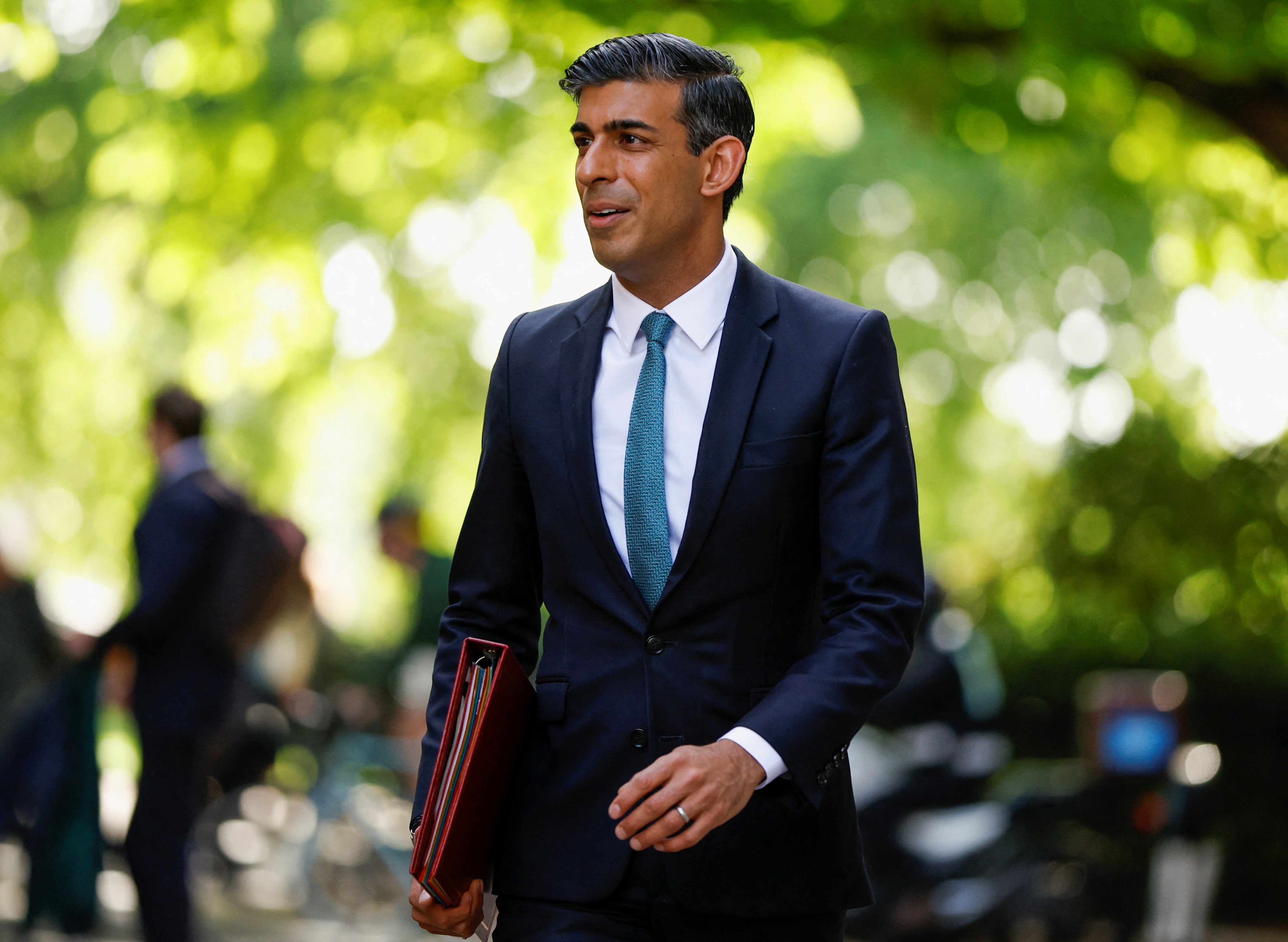Rishi Sunak is protecting pensioners while workers feel the pain
The chancellor’s claims of ‘responsibility’ don’t stand up to scrutiny, believes James Moore. Nor his rationale for demanding wage restraint from public sector employees while handing pensioners a 10 per cent rise


Being responsible with the public finances now will mean future generations aren’t burdened with even higher debt repayments, and we can secure our economy for the long term,” Rishi Sunak has said, responding to the latest figures on government borrowing. They don’t make for happy reading.
All that talk of the billions of pounds of “fiscal headroom” he had to do things has evaporated quicker than the water out of the top of a cup of hot tea.
The government borrowed £14bn in May, down £4bn when compared to last year, but still the third highest total for the month since records began. Debt interest rolled in at £7.6bn, more than double the figure of 12 months ago.
The cause? Bonds linked to the Retail Prices Index, an outdated measure of inflation which tends to come out higher than the standard Consumer Prices Index (CPI). The former is already in double figures and Sunak has taken some heat for not making the switch. Holders of index-linked government IOUs, however, have probably been cheering him on.
May’s headline number also came out £3.7bn above the forecast of the Office for Budget Responsibility. It should be pointed out that this is not at all unusual and not necessarily something to worry about. These numbers tend to be quite choppy from month to month. But that doesn’t diminish the difficult situation Sunak is in, which brings us back to his claim of being “responsible”.
Behaving “responsibly” with respect to the public finances, and inflationary pressures, is the justification for the brakes the chancellor wants to apply to public sector wage demands ahead of a potential summer of discontent. Teachers, who have seen their incomes badly squeezed in recent years, are currently sitting at the front of the classroom when it comes to bargaining. There will be others joining them soon enough.
That same “responsible” chancellor is also reinstituting the pensioners’ triple lock, which guarantees that the state pension will rise in line with inflation, average earnings, or 2.5 per cent, whichever is higher. While calling for pay restraint from everyone else. The lock was temporarily suspended during the Covid-19 pandemic, although pensioners didn’t lose out in real terms even then.
Len Shackleton, labour market expert at the Institute of Economic Affairs, the free market think tank which is often referred to as “Thatcherite”, has summed up the problem with what the chancellor is doing quite nicely. “It is difficult to call for wage restraint among the working-age population while pensioners receive a big increase,” he has said. “Pensioners have already been partially compensated for energy price hikes and so it is probably not appropriate to raise pensions by the full amount of the CPI rise as the triple-lock formula would require.”
Personally, I’d drop the “probably”.
The triple lock was an important mechanism for raising pensioners’ incomes when they were terribly low, and has certainly improved things on that measure, even if the UK’s offer is still lower than in parts of Europe. And Sunak has an explanation for the return of the triple lock, at least if you set aside the (nasty) fiscal impact of his decision.
Boosting pensioners’ income, he has argued, doesn’t have the same inflationary impact as helping out Britain’s hard-pressed teachers. “The slight difference with pensions is pensions are not an input cost into the cost of producing goods and services we all consume – so they don’t add to inflation in the same way,” according to Sunak.
I’m not an economist but I am a writer with a long history of covering matters economic and financial. And I confess that one had me scratching my head. So I approached an economist of my acquaintance to ask if I was missing something.
“Slight,” they said having considered Sunak’s words, “is doing a lot of the heavy lifting here,” my acquaintance says.
“The evidence we have is that if you give an additional unit of income to someone out of the workforce (retirees/ inactive/unemployed) then the passthrough to discretionary consumption (where supply shortages are generating inflation) is lower than if that same amount was provided to someone of working age.”
But, they note, higher pensioner incomes may also have an impact on their propensity to work past the state pension age. If a 10 per cent uplift means fewer older workers are either in, or searching for, work then labour supply shortages, and by extension inflation, will be higher.
A notable recent feature of the UK labour market has been the rise in the number of people described as “economically inactive”, which includes a substantial chunk of older workers. So you can see just how slight Sunak’s justification really is.
Shackleton, the labour market expert, also makes the point that pensioners are, these days, far less likely to be in poverty than families with young children. Indeed so. They were protected throughout the austerity years. The latter were not. Let’s cut to the chase: economic calculations, inflationary pressures and fiscal responsibility played no part in the chancellor’s policy position. It seems to be entirely motivated by politics.
Many teachers have tended not to vote Tory, and can you blame them? Pensioners, by contrast, provide the bedrock of Conservative support. In fact, without them they’d be toast. So the former are punished while the latter are protected, even coddled.
As for future generations, the debt repayments they face, the need to “secure our economy for the long term”? These are secondary considerations when set against keeping the base sweet.






Join our commenting forum
Join thought-provoking conversations, follow other Independent readers and see their replies
Comments